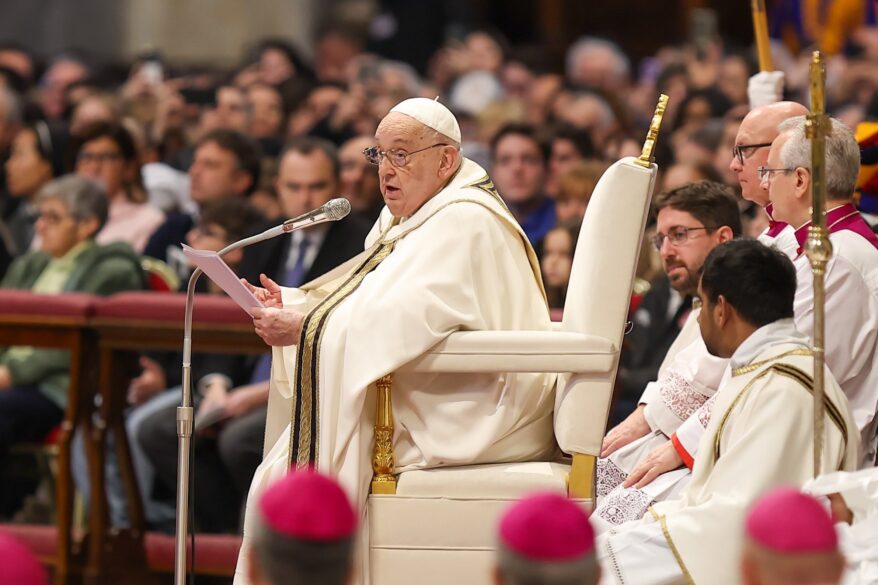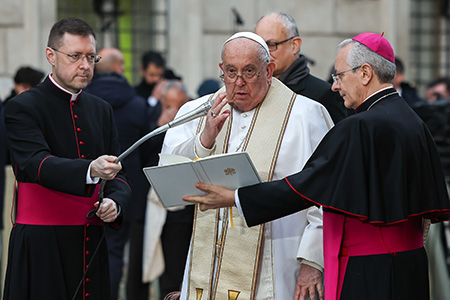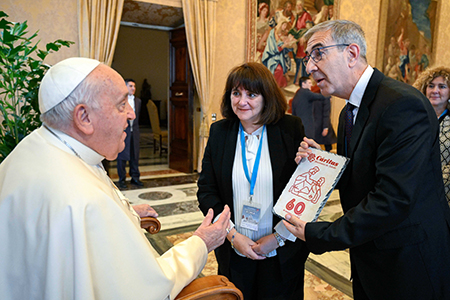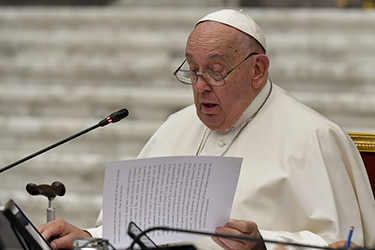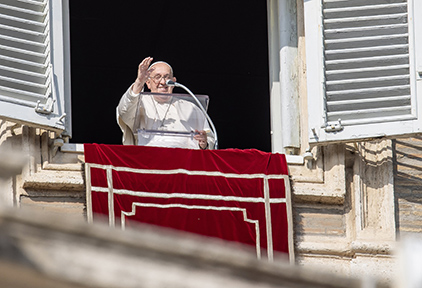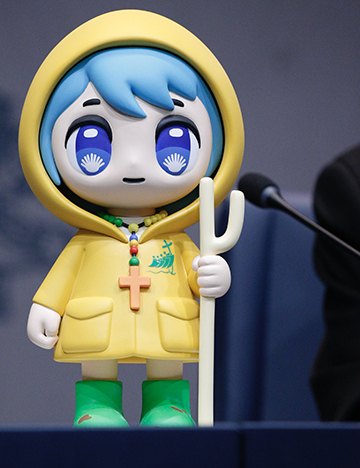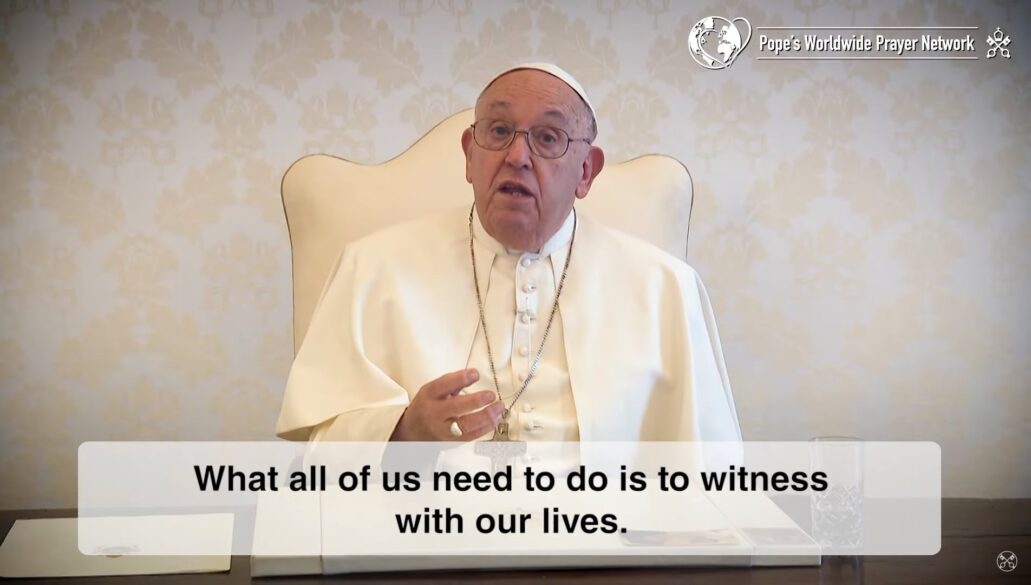By Justin McLellan
VATICAN CITY (CNS) – In a troubled world, the birth of Christ reveals God’s unwavering determination to draw all people to himself and illuminate even the darkest corners, Pope Francis said.
Despite being born into a world “where there is a great need for light, for hope and a need for peace, a world where people at times create situations so complicated that it seems impossible to get out of them,” Jesus, the pope said, opens windows of light “even in the darkest nights of humanity.”
“God never stops, he finds a thousand ways to reach everyone, each and every one of us, wherever we are, without calculation and without conditions,” he said before praying the Angelus with visitors in St. Peter’s Square Jan 5.
Pope Francis said that Christmas celebrates how Jesus, through his humble birth, “overcomes so many walls and so many divisions.”
“He confronts the closed minds and hearts of the ‘great’ of his time, who are concerned more with defending power than seeking the Lord,” he said.
Born to parents “without means,” Jesus offers himself to the shepherds who were in the fields with their sheep, “men whose hearts are marked by the harshness of life and the disdain of society,” the pope said, as well as to the Magi who find Jesus “in great poverty.”
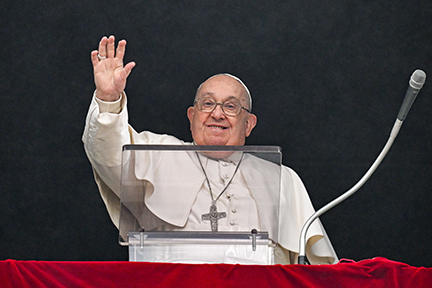
Pope Francis said Christians should be consoled and encouraged by the context of Jesus’ birth: “It seems impossible to get out of so many situations, but today the word of God tells us that it is not.”
He said that Christians are called to “to imitate the God of love, opening up glimmers of light wherever we can, with whomever we meet, in any context: family, social, international.”
God “invites us to not be afraid of taking the first step,” the pope said. “This is the Lord’s invitation today: let us not fear taking the first step; it takes courage to do it but let us not be afraid.”
Pope Francis said that opening “wide bright windows of closeness to those who are suffering, of forgiveness, of compassion and reconciliation” are the “many first steps we must take to make the path clearer, safer and possible for all.”
Particularly during the current Holy Year, he said, God invites Christians to be messengers of hope by saying “yes” to life in simple and concrete ways “with choices that bring life.”
After praying the Angelus, Pope Francis prayed for peace in Ukraine, Palestine, Israel, Lebanon, Syria, Myanmar and Sudan. He called on the international community to “act firmly so that humanitarian law is respected in conflicts.”
“No more striking schools, hospitals; no more hitting workplaces,” he said. “Let us not forget that war is always a defeat, always!”

